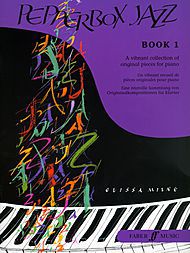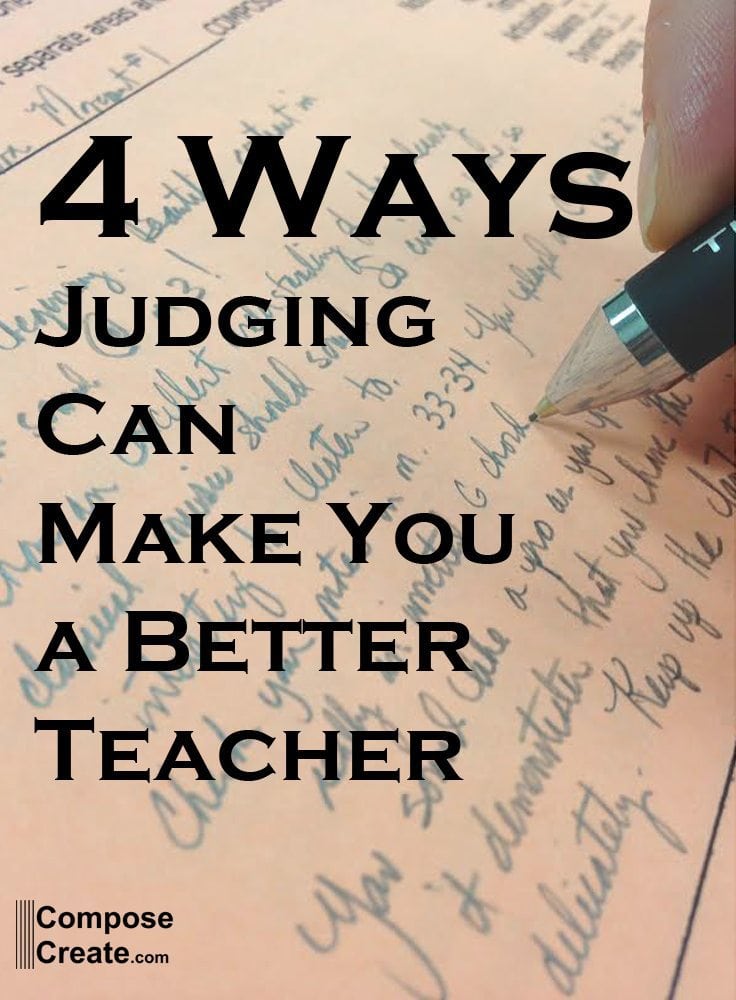by Marcia Vahl, NCTM
As we begin a new teaching year here in the states, I’m excited to have Marcia Vahl back to give us even more thoughts on how to be a better piano judge, adjudicator, and even teacher. Last spring, Marcia wrote “The 4 Elements of a Great Critique” which is a must-read article for any piano judge, adjudicator, or any organization choosing judges for their event. It also contains good reminders for all of us teachers as we encourage and seek to inspire our students to more musical playing. Here is another wonderful article by Marcia:
4 Ways Being a Good Piano Judge Can Make You A Better Teacher
One of the things I love about being a piano judge at events is that it inspires me to become a better teacher. When I walked into a room to judge for the first time, I never expected all the ways I would be learning myself. I’ve come to view judging as a way we both give and receive.
Albert Schweitzer wisely said, “I do not believe that we can put into anyone ideas which are not in him already. As a rule there is in everyone all sorts of good ideas, ready like tinder. But much of this tinder catches fire, or catches it successfully, only when it meets some flame or spark from the outside, from some other person. Often, too, our own light goes out, and is rekindled by some experience we go through with a fellow man. Thus we have each of us cause to think with deep gratitude of those who have lighted the flame within us. If we had before us those who have thus been a blessing to us, and could tell them how it came about, they would be amazed to learn what passed over from their life to ours.”
I asked teachers on several online discussion groups what they thought they have learned from experience as a piano judge. All of the suggestions I received really resonated with my own experiences as a judge of festivals, contests, and examinations. Several categories of results came through, loud and clear: Our expectations of our students, our style of communication, and our teaching practices.
Higher Expectations
How have your expectations of students changed through the years you have been teaching? As beginning teachers, many of us probably started as “turn-the-page” teachers. From observing students as a judge, I profited from seeing even young students mastering a minuet from the AM Notebook or an Invention, a Chopin waltz, or Tcherepnin bagatelle, and it raised the level of what I could expect from my young students. Judging taught me to use great repertoire of all genres with all levels of students, and my students really rose to meet higher expectations.
Finding New Repertoire

One of the most important things I’ve gained from judging is finding new, exciting repertoire. I remember my first time judging for a Federation Festival. I think I spent equal time writing the critiques and jotting down new repertoire suggestions the students were performing! It’s always great to hear new repertoire that students are performing convincingly.
Broader Style of Communication
Through judging I developed a broader style of communication. How many ways can you say “Good Job?” I was frustrated with repeating the same comments over and over, so a few years ago I typed a document “Collected Comments – Ways To Say Good Job – Ways To Say Almost.” I carry either a paper or electronic copy with me every time I judge, and it helps jog my memory of positive compliments and how to respectfully talk about ways for the student to improve. Every time a student steps into my studio for a lesson, I’m called upon to employ the same discretion with the way I say things with kindness and honesty.
Good Teaching Does Matter
What is your biggest lesson from being a piano judge? I’d have to say that mine is “Good Teaching Does Matter.” When I am judging, I take note of what I do and do not want my students to emulate. I pay attention to what I’m seeing and hearing in other teachers’ students, the artistry with which they approach musicianship, how they conduct themselves, what to wear, and their confidence when performing. I’m constantly reminded that my lessons must be of the highest quality if I expect high quality performance and progress from my students.
Have you reflected on the mentors in your life? How did they kindle a desire in you to be a better teacher? Are you passing on that desire to someone else’s life? I’d love to hear your comments.
 Marcia A. Vahl, NCTM, is owner and teacher at Maple Grove Piano in Maple Grove, Minnesota. Her background includes degrees in music education and piano performance, 30+ years teaching experience in the classroom and private lesson studio, and more than 20 years church music ministry. She is an active member of both MMTA, MTNA, and National Piano Guild. She has served MMTA as hospitality chairman for judges at the state contest, judge for theory, piano exams, and contest, and secretary for the Education Council. Most recently she served as State Contest Administrator for 2005-2006 and Vice President of Minnesota State Piano Contests from 2006-2010. She has given presentations on Motivation, Building A Website for Your Studio, and Judge Training at the Minnesota State Convention. Her current responsibility is Judge Education Chair for Minnesota Music Teachers Association.
Marcia A. Vahl, NCTM, is owner and teacher at Maple Grove Piano in Maple Grove, Minnesota. Her background includes degrees in music education and piano performance, 30+ years teaching experience in the classroom and private lesson studio, and more than 20 years church music ministry. She is an active member of both MMTA, MTNA, and National Piano Guild. She has served MMTA as hospitality chairman for judges at the state contest, judge for theory, piano exams, and contest, and secretary for the Education Council. Most recently she served as State Contest Administrator for 2005-2006 and Vice President of Minnesota State Piano Contests from 2006-2010. She has given presentations on Motivation, Building A Website for Your Studio, and Judge Training at the Minnesota State Convention. Her current responsibility is Judge Education Chair for Minnesota Music Teachers Association.
Read Marcia’s other excellent article: The 4 Elements of a Great Critique


Pingback: Friday Favourites - Discover Singing